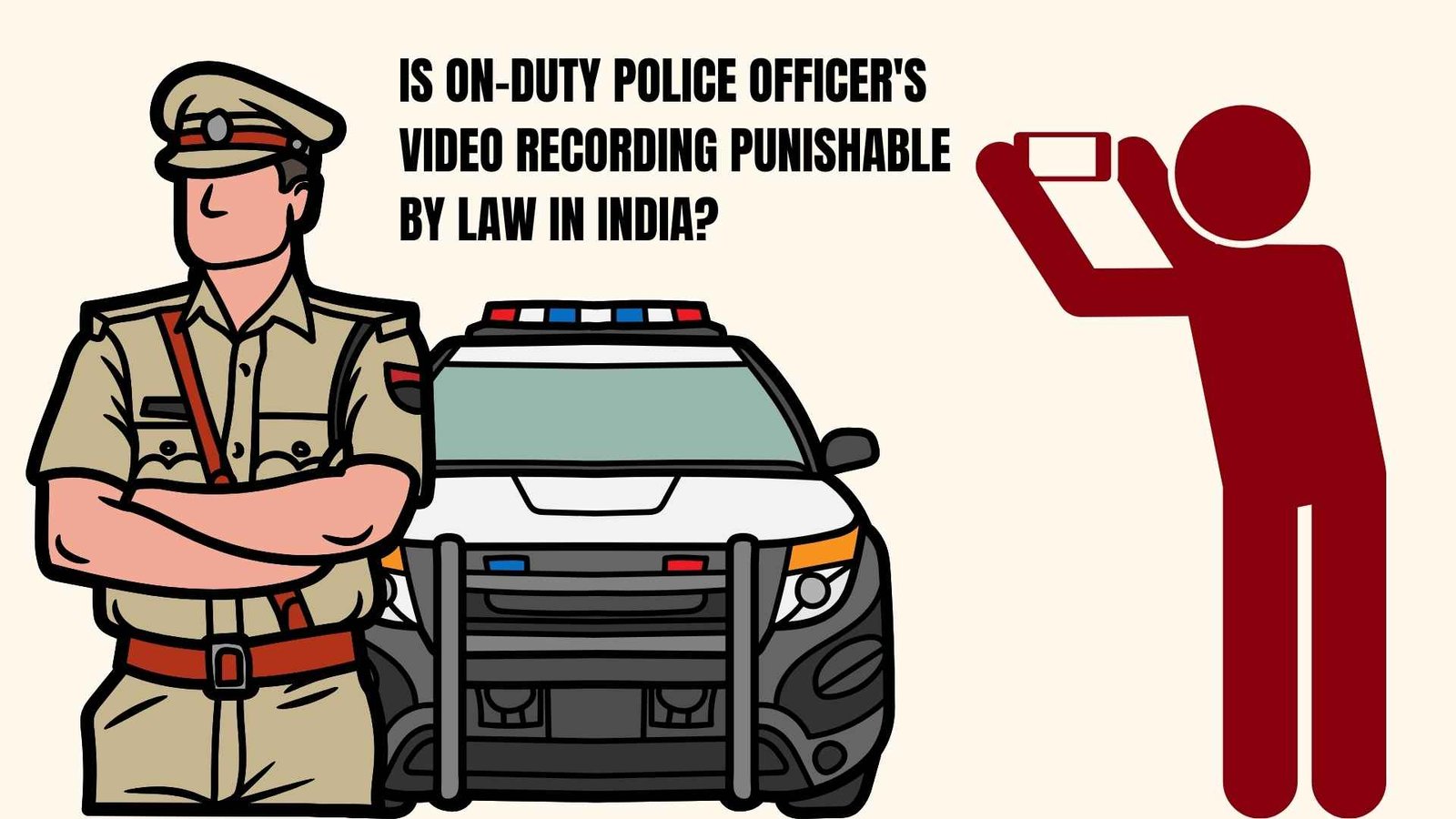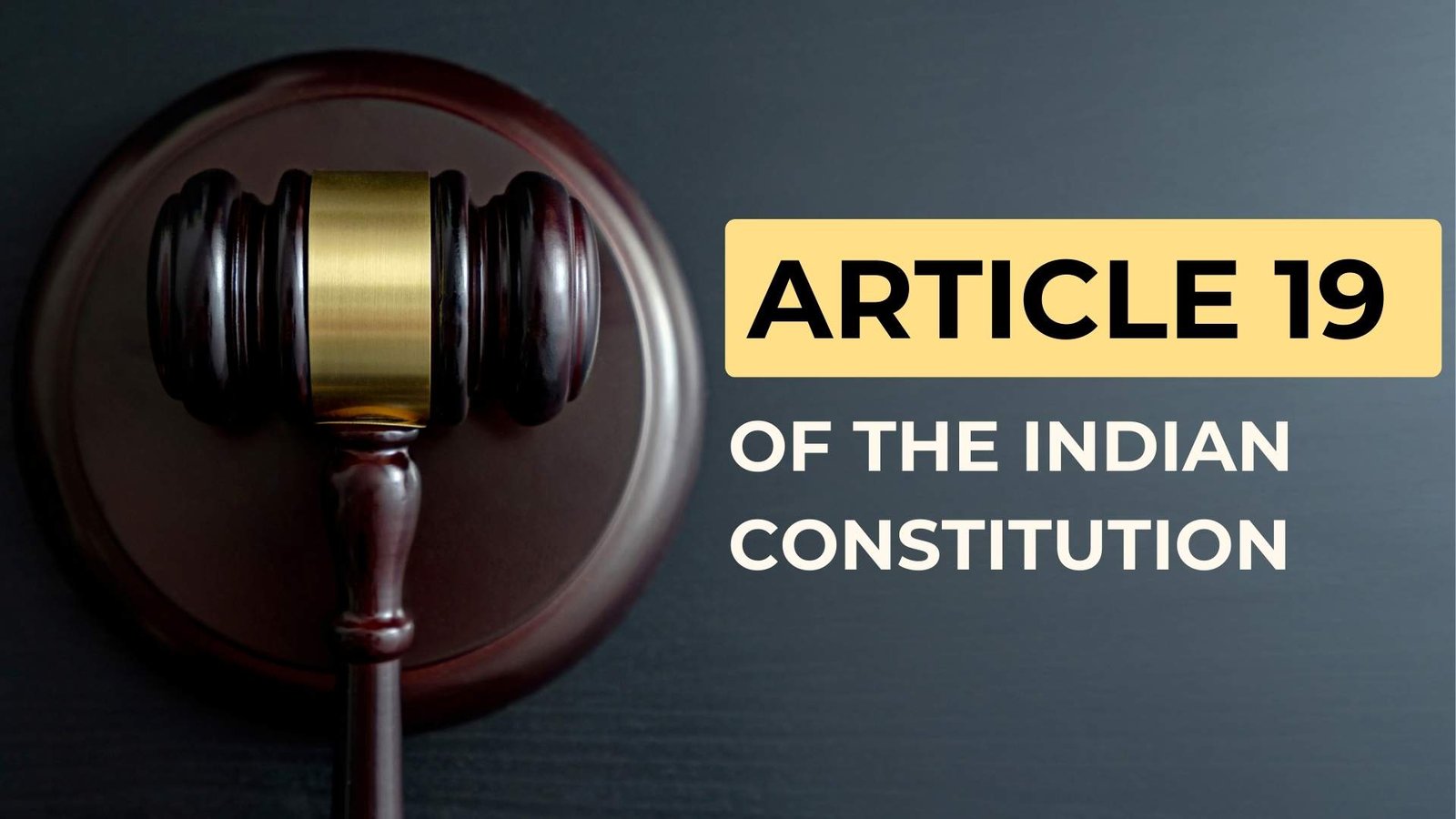On this page you will read detailed information about Is On-Duty Police Officer’s Video Recording Punishable By law in India?
As a citizen in India, you may wonder about your rights when it comes to recording police officers in the line of duty. With smartphones ubiquitous and viral videos increasingly common, understanding the legal landscape around filming law enforcement is crucial. Can you legally record on-duty officers? What are the potential consequences? This article will examine the current laws and regulations in India regarding citizen recordings of police activities. You’ll learn about your rights, limitations, and best practices for safely and legally documenting police encounters. Whether you’re an activist, journalist, or concerned citizen, this information is vital in today’s digital age.
The Legality of Recording Police in India
Constitutional Rights and Privacy
The Constitution of India provides citizens with fundamental rights, including the right to life and liberty under Article 21. This right has been interpreted to encompass privacy. However, when it comes to recording on-duty police officers, their actions are not considered a violation of personal autonomy and do not fall under the right to privacy. This distinction is crucial in understanding the legal landscape surrounding this issue.
State-Specific Regulations
Interestingly, some states have taken proactive measures to protect citizens’ right to record police conduct. For instance, the Kerala Police Act 2011 explicitly states that police officers should not prevent members of the public from making electronic records or videos of any illegal police action or activity carried out in public or private. This progressive stance aims to promote transparency and accountability in law enforcement.
Potential Legal Consequences
While recording lawful police conduct is not explicitly prohibited, it’s important to note that certain actions may lead to legal repercussions. Sections 186 and 353 of the Indian Penal Code may impose criminal liability if the recording is found to be obstructing or using force against the police officer. Therefore, it’s advisable to exercise caution and, when possible, obtain the officer’s permission before recording to avoid potential legal issues.
Balancing Rights and Duties
The law aims to strike a balance between citizens’ rights to hold public servants accountable and the need to protect police officers’ ability to perform their duties effectively. If a police officer is not performing their duty properly, harassing the public, or violating legal rights, then recording them can be justified as a form of whistleblowing. However, if the officer is carrying out their responsibilities correctly, the person recording may face legal consequences.
When Can You Record Police Officers?
Legal Framework
In India, the legality of recording on-duty police officers is not explicitly defined in statutes. However, it can be interpreted from related legal provisions and case law. The Constitution of India’s Article 21 guarantees the right to life and liberty, which encompasses the right to privacy. Importantly, the actions of police officers on duty are not considered a violation of their personal privacy.
State-Specific Regulations
Some states have specific laws addressing this issue. For instance, Section 33(2) of the Kerala Police Act 2011 explicitly allows citizens to legally record police actions using audio, video, or electronic means. However, it’s crucial to be aware of potential state-specific regulations that may affect your right to record.
Limitations and Precautions
While recording lawful police actions is generally permitted, there are important limitations to consider:
- Do not obstruct the officer’s duties: Section 186 of the Indian Penal Code prohibits interfering with a public servant’s work.
- Avoid using force: Section 353 deals with using force to deter a public servant, which can lead to severe penalties.
- Inform the officers: It’s advisable to notify the police before recording to avoid potential conflicts.
Remember, while citizens have the right to document police activities for transparency and accountability, it should be done without hindering their work. If you encounter resistance, remain calm and assert your rights respectfully.
In the previous post, we had shared information about An Overview of Guaranteed Consumer Rights in India, so read that post also.
Exceptions to Recording Police Officers
While recording on-duty police officers is generally legal in India, there are important exceptions to be aware of. Understanding these limitations can help you stay within the bounds of the law while exercising your rights.
Privacy Considerations
Recording police officers in public spaces is typically allowed, but this right does not extend to private conversations or areas where there’s a reasonable expectation of privacy. According to legal experts, secretly recording conversations with police officers may be prohibited, even if you’re a participant in the conversation. Always ensure you’re in a public space and not interfering with police duties when recording.
Interference with Police Work
While you have the right to record, this right is not absolute. Police officers may ask you to stop recording if your actions are truly interfering with legitimate law enforcement operations. In such cases, it’s generally advisable to comply with the officer’s request to avoid potential legal complications. However, officers cannot arbitrarily order you to stop recording or delete your footage without proper cause.
Sensitive Information and National Security
In certain situations, recording may be restricted due to national security concerns or the presence of sensitive information. For instance, areas around government buildings or military installations may have specific regulations against recording. Always be aware of your surroundings and any posted restrictions.
Remember, while recording police officers can be a powerful tool for accountability, it’s crucial to exercise this right responsibly and within legal boundaries. When in doubt, it’s best to seek legal advice or consult with local authorities about specific regulations in your area.
What Type of Recording is Allowed?
Recording on-duty police officers in India is generally legal, but there are important nuances to consider. Understanding the boundaries can help you exercise your rights responsibly while respecting law enforcement’s ability to perform their duties.
Public vs. Private Spaces
According to the Kerala Police Act 2011, you have the right to make electronic recordings or videos of police actions in both public and private places. This provision aims to promote transparency and accountability in law enforcement.
Intent Matters
The legality of recording often hinges on your intent. Recording for legitimate purposes, such as documenting potential misconduct, is generally permitted. However, if your actions obstruct an officer’s duties or are deemed harassing, you may face legal consequences.
Limitations to Consider
While recording is broadly allowed, there are important restrictions:
- Section 186 of the Indian Penal Code prohibits obstructing public servants from performing their duties. If your recording interferes with police work, you could face fines or imprisonment.
- Section 353 addresses using force to deter public servants, which can result in serious penalties.
- Some sensitive locations or situations may have specific restrictions on recording.
Best Practices
To stay on the right side of the law:
- Inform officers of your intention to record when possible.
- Maintain a respectful distance to avoid interfering with police work.
- Be aware of any state-specific laws that may apply to your situation.
Remember, while recording can be a powerful tool for accountability, it’s crucial to balance this right with the need for effective law enforcement.
Can Officers Confiscate Your Recording Device?
Legal Limitations on Seizure
While you have the right to record on-duty police officers in India, it’s crucial to understand the limitations surrounding device confiscation. According to Indian law, police officers are generally not allowed to confiscate or destroy your recording device without a valid legal reason. However, there are exceptions to this rule that you should be aware of.
Grounds for Confiscation
Officers may have grounds to seize your device if they believe it contains evidence of a crime. However, warrantless seizures are only legal if there’s probable cause and exigent circumstances exist. For instance, if your recording is interfering with their duties or being used to threaten or harass them, they may ask you to stop or temporarily seize the device.
Protecting Your Rights
To protect your rights and avoid potential issues:
- Be respectful and don’t interfere with police work while recording.
- If asked to stop, comply politely but assert your right to record.
- Keep your device locked to protect your privacy.
Recent legal challenges in India’s Supreme Court are addressing concerns about improper device seizures and searches. Proposed guidelines may soon require judicial warrants specifying the information sought and establish clearer procedures for handling digital evidence.
New Legislation and Its Impact
The Bharatiya Nyaya Suraksha Sanhita (BNSS) Bill, 2023 proposes changes that could affect both citizen recordings and police procedures. While it mandates audio-video recording of certain police activities, it also expands police powers in accessing digital evidence. This underscores the importance of staying informed about your rights and the evolving legal landscape.
What to Do If You Are Detained for Recording
If you find yourself detained for recording a police officer on duty in India, it’s crucial to remain calm and know your rights. Here are some steps to follow:
Assert Your Legal Rights
Politely inform the officer that recording police interactions is generally legal in India. Avoid confrontation or escalating the situation. If possible, continue recording the interaction as it can serve as valuable evidence later.
Comply with Instructions
If the officer persists in detaining you, comply with their instructions to avoid further complications. However, make a mental note of the officer’s name, badge number, and the reason given for your detention. This information may be crucial for any future legal action.
Know Your Rights When Arrested
If you are formally arrested, remember that you have the right to be informed of the grounds for your arrest. You also have the right to consult a lawyer and to be produced before a magistrate within 24 hours. Request a medical examination if you believe you’ve been mistreated in custody.
Seek Legal Assistance
After the incident, consider seeking legal advice. If the police officer’s actions were unjustified or violated your rights, you may have grounds for filing a complaint or taking legal action. Remember, the Supreme Court has issued guidelines to curb unnecessary arrests, emphasizing that the power of arrest must be exercised sparingly.
By staying informed and calm, you can better navigate this challenging situation while protecting your rights and potentially contributing to improved police accountability.
Best Practices for Recording Police Encounters
When documenting police interactions, it’s crucial to follow certain guidelines to ensure your safety and legal compliance. Here are some best practices to keep in mind:
Know Your Rights
Before recording any police encounter, it’s essential to understand your legal rights. According to the Supreme Court guidelines, citizens have the right to document police activities in public spaces. However, it’s important to exercise this right responsibly and without interfering with police duties.
Maintain a Safe Distance
Always prioritize your safety and that of others around you. Keep a reasonable distance from the officers and the scene to avoid obstructing their work or putting yourself at risk. Remember, your goal is to document, not to intervene.
Be Respectful and Transparent
When recording, announce your intentions clearly to the officers involved. As per NHRC guidelines, police are required to follow certain procedures during encounters. By being transparent about your actions, you’re less likely to be perceived as a threat.
Document Thoroughly
Capture as much context as possible, including date, time, location, and officer badge numbers if visible. This information can be crucial if the footage is ever needed for legal purposes. The Supreme Court mandates that all encounter details must be thoroughly documented, so your footage could potentially serve as valuable evidence.
Know When to Stop
If an officer explicitly orders you to stop recording, it’s generally best to comply to avoid escalating the situation. You can later file a complaint if you believe your rights were violated. Remember, the law requires police to follow specific procedures during encounters, including providing medical aid to injured parties and conducting independent investigations.
By following these guidelines, you can effectively document police encounters while maintaining safety and legal compliance.
Potential Consequences of Illegally Recording Officers
While citizens generally have the right to record police officers performing their duties in public spaces in India, there can be serious repercussions for doing so illegally or inappropriately. Understanding these potential consequences is crucial for anyone considering filming police interactions.
Legal Ramifications
According to legal experts, illegally recording police officers could lead to charges of obstructing or interfering with police duties. In extreme cases, individuals may face arrest or legal action, even if the initial recording was lawful. It’s important to note that while recording is generally permitted, there are situations where it may be restricted, such as in sensitive areas or during confidential operations.
Personal and Property Risks
Citizens who record police interactions may face immediate personal risks. Some officers may attempt to prevent recording, even if it’s legally allowed. This could result in the confiscation or damage of recording devices. In more serious incidents, individuals might face physical confrontation or threats from officers who object to being filmed.
Impact on Police-Community Relations
Unauthorized or confrontational recording of police officers can strain relationships between law enforcement and the community. While transparency is important, aggressive filming may lead to increased tension during police interactions. According to senior police officials, constant recording may also discourage officers from acting flexibly in certain situations, potentially affecting their ability to perform their duties effectively.
Navigating the Gray Areas
It’s crucial to understand that while recording police is generally legal, the interpretation and application of these rights can vary. Recent legislative proposals aim to increase transparency in police interactions, but implementation challenges remain. Citizens should be aware of their rights, remain calm and cooperative when recording, and seek legal advice if uncertain about the legality of their actions in specific situations.
FAQs: Can You Legally Video Record On-Duty Police Officers in India?
In India, the legality of recording on-duty police officers is a complex issue. Generally, it is legal to make video recordings of police officers while they are on duty, such as during traffic stops or other law enforcement activities. However, there are important caveats and limitations to consider.
While recording police actions can serve as evidence, it’s crucial to be mindful of privacy issues. It’s recommended to obtain the officer’s permission before recording to avoid potential criminal liability. This approach helps balance the public’s right to document police conduct with the officer’s right to privacy.
The legality of recording police officers can vary by state. For example, the Kerala Police Act 2011 explicitly allows citizens to make electronic records or videos of any illegal police actions in public or private places. It’s essential to be aware of your specific state’s laws regarding this matter.
While recording itself may be legal, certain actions during recording could lead to legal consequences. Under Section 186 of the Indian Penal Code, obstructing a public servant (including police officers) in the discharge of their duties is a punishable offense. Therefore, it’s crucial to record without interfering with the officer’s work.
The Indian Constitution’s Article 21 provides the right to privacy. However, this right doesn’t apply when a police officer is violating the law or misusing their power. In such cases, recording the officer is considered in the public interest and not a violation of privacy.
Conclusion
As you navigate the complex landscape of civil rights and law enforcement in India, understanding your rights regarding video recording police is crucial. While no explicit law prohibits filming on-duty officers, exercise caution and respect privacy concerns. Remember that recording must not interfere with police duties or compromise sensitive operations. Stay informed about evolving regulations and court rulings on this issue. Ultimately, responsible citizen journalism can promote transparency and accountability, but it must be balanced with the need for effective law enforcement. When in doubt, consult legal experts to ensure you’re operating within the bounds of the law while exercising your rights as an engaged citizen.
Disclaimer
The information and services on this website are not intended to and shall not be used as legal advice. You should consult a Legal Professional for any legal or solicited advice. While we have good faith and our own independent research to every information listed on the website and do our best to ensure that the data provided is accurate. However, we do not guarantee the information provided is accurate and make no representation or warranty of any kind, express or implied, regarding the accuracy, adequacy, validity, reliability, availability, or completeness of any information on the Site. UNDER NO CIRCUMSTANCES SHALL WE HAVE ANY LIABILITY TO YOU FOR ANY LOSS OR DAMAGE OF ANY KIND INCURRED AS A RESULT OR RELIANCE ON ANY INFORMATION PROVIDED ON THE SITE. YOUR USE OF THE SITE AND YOUR RELIANCE ON ANY INFORMATION ON THE SITE IS SOLELY AT YOUR OWN RISK. Comments on this website are the sole responsibility of their writers so the accuracy, completeness, veracity, honesty, factuality and politeness of comments are not guaranteed.
So friends, today we talked about Is On-Duty Police Officer’s Video Recording Punishable By law in India?, hope you liked our post.
If you liked the information about Is On-Duty Police Officer’s Video Recording Punishable By law in India?, then definitely share this article with your friends.
Knowing about laws can make you feel super smart ! If you find value in the content you may consider joining our not for profit Legal Community ! You can ask unlimited questions on WhatsApp and get answers. You can DM or send your name & number to 8208309918 on WhatsApp








